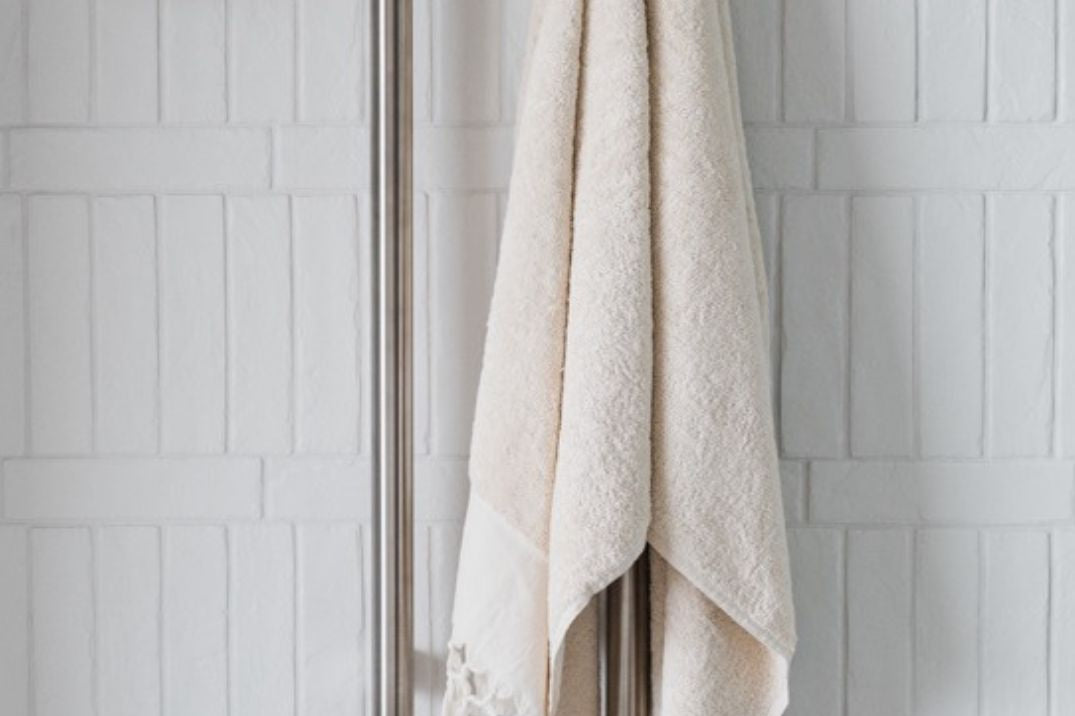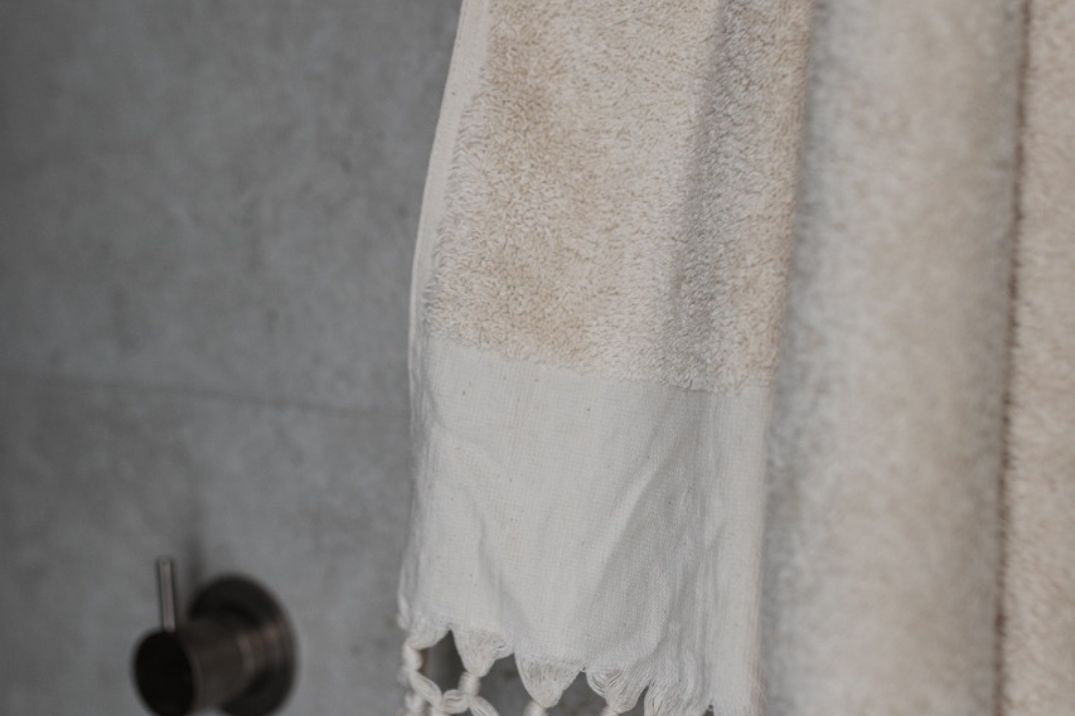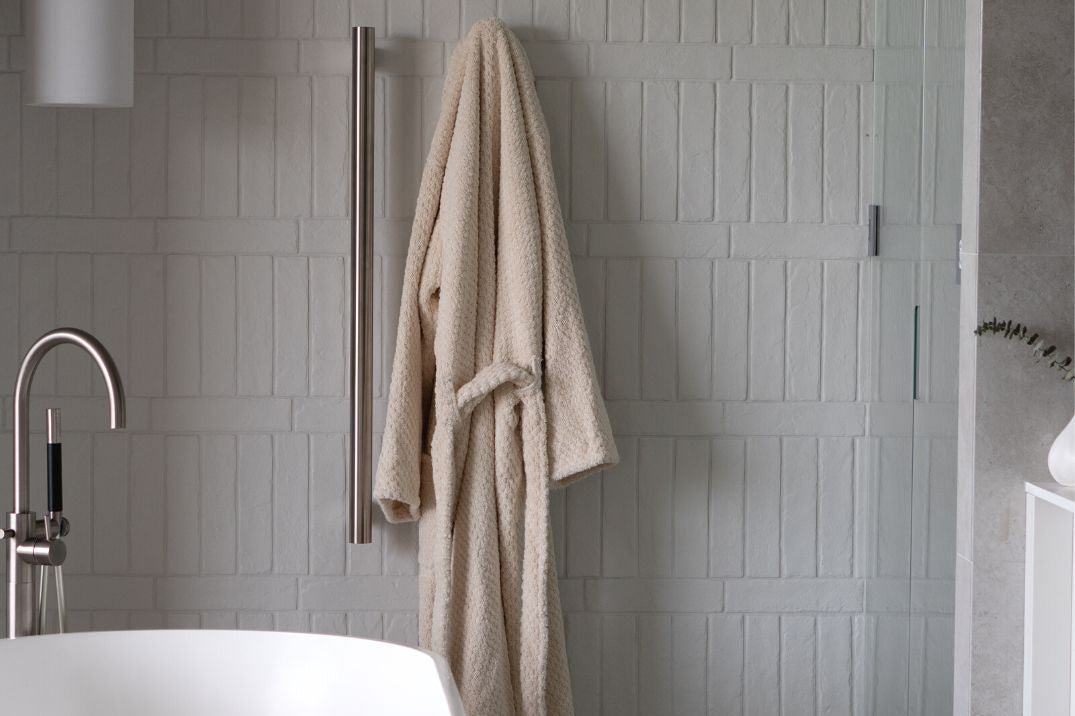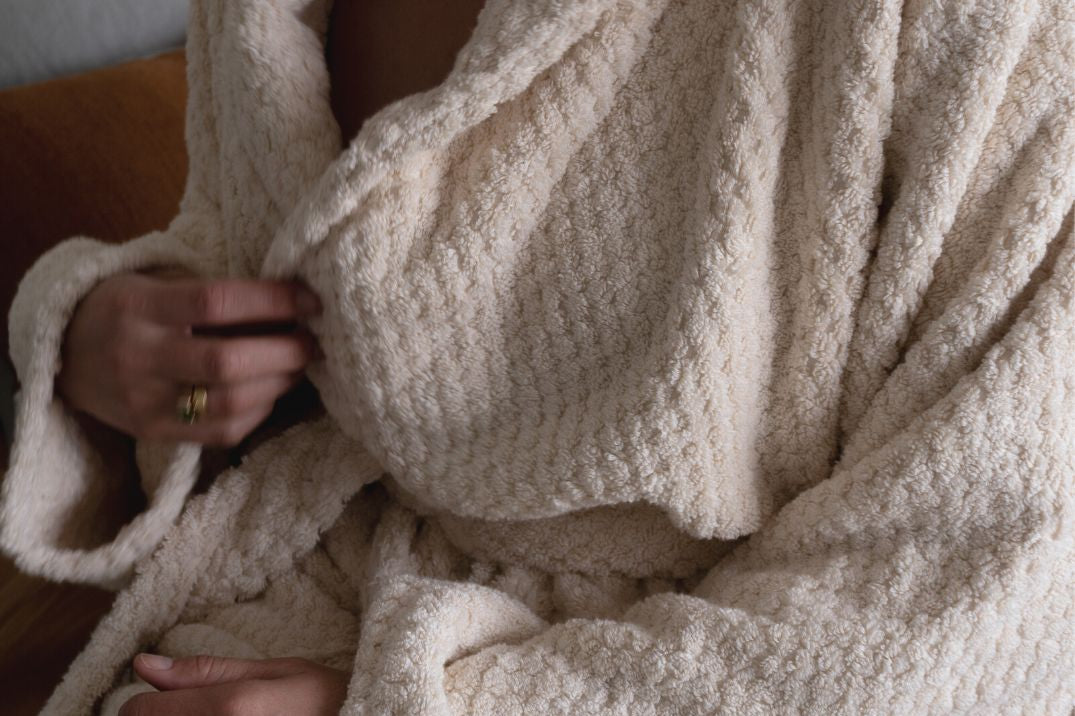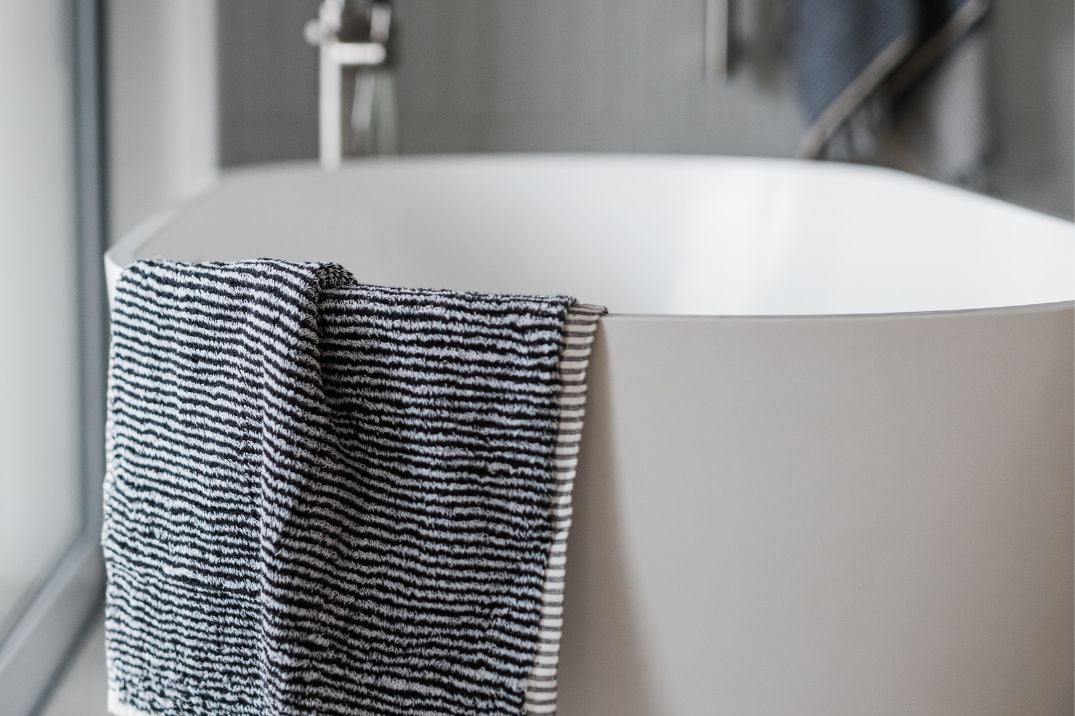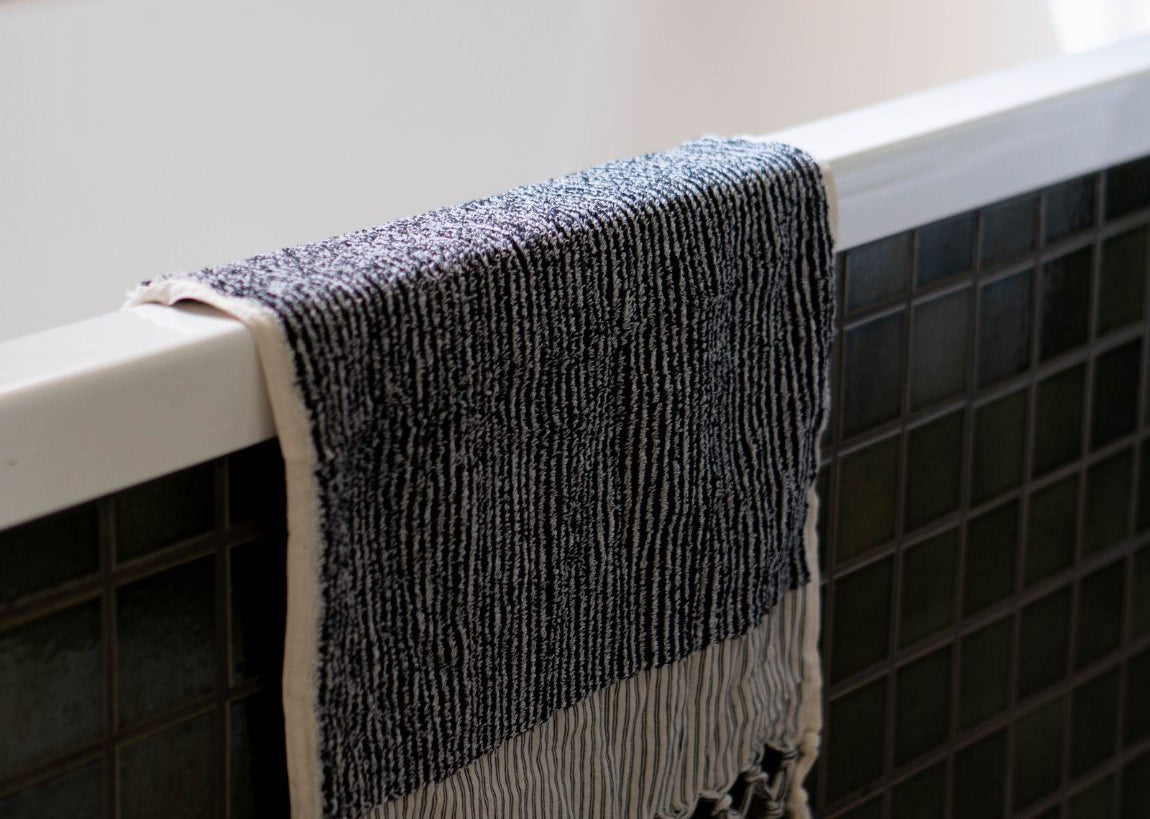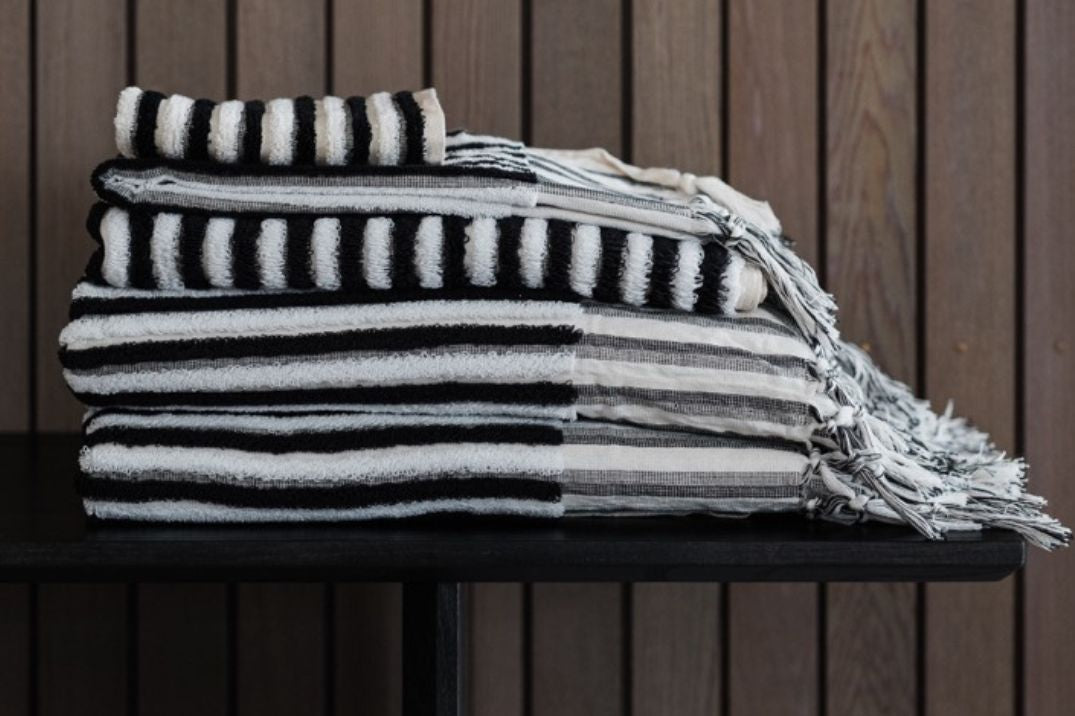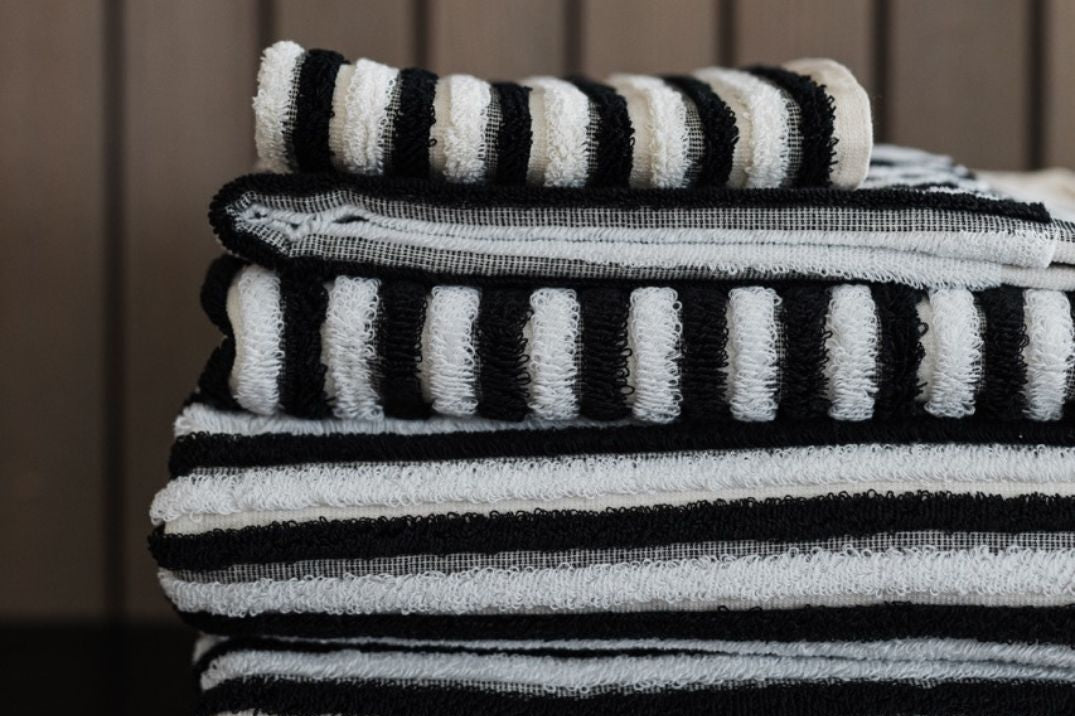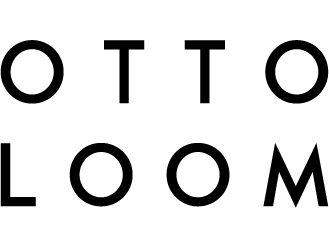FAQs
Turkish Towel Range
What is a Turkish pestamel?
A pestamel is a flat woven, thin towel that has been used in Turkish Hamam (baths) since the Ottoman Empire. Popular with the Ottoman Royals, the pestamel was perfect for Hamam as they are light to wrap around the body and highly absorbent. In recent decades the pestamel has become popular around the world due to its practicality, style and multiple uses.
How absorbent are pestamels?
Pestamels are just as absorbent as traditional towels and our organic cotton towels become more absorbent with every wash. Non-organic cotton is treated with chemicals to break it in which reduces absorbency by killing the cotton. Organic cotton must be naturally broken in with time, use, and washing. Once broken in (after 3-4 washes), it is far softer and more absorbent than traditional cotton.
What is a thick looped towel?
Our thick looped Turkish organic cotton towels are the complete opposite to pestamel – they are very thick and luxurious. Ottoman weavers in the 17th century invented the 'looping' technique (cotton woven in loops) on wooden looms and revolutionized our idea of what a towel is. Today, 99.9% of towels made around the world are made on factory machines. They last approximately 5-7 years and are usually made with non-organic cotton or even worse, non-natural materials like acrylic, viscose and polyester fibres.
We only sell towels woven on old-style looms with shuttles, made by the last few families of weavers in Turkey who still know how to do this looping technique.
The strength and integrity of a woven towel made on a loom with loops is far superior to its small or big factory distant cousin. Loomed towels last a minimum of 20 years. And, like our pestamel, we only use 100% GOTS certified organic cotton.
Where are Ottoloom towels made?
Our towels are made by 17 weaving families in Southern Turkey who’ve been weaving towels for centuries. Each family makes one or two styles on their own traditional wooden shuttle loom.
The art of weaving in Turkey is dying due to the increase of factory made products. Without the increase in demand for hand loomed products, these families would lose their income and livelihood that has been passed down through generations.
Why is hand loomed better?
All our pestamels and thick looped towels are hand woven. It is a labour intensive process which results in very high quality products that last three to six times longer than manufactured towels. Towels that have been hand woven are better than factory made towels because the cotton has been handled at slower speeds. When threads are run through factory machines at very high speeds, fibres become stressed resulting in a rough feel and poor quality thread. Our handmade towels are in no way comparable to the touch and quality of mass produced cotton towels.
Why is Organic Cotton better?
Organic cotton is softer, more durable and more absorbent than non-organic cotton and has a much less harmful impact on the environment. Only 5% of towels sold worldwide are made from organic cotton and other natural fibres. Organic cotton is entirely free of pesticides and chemicals normally sprayed on non-organic crops.
What is GOTS certification?
GOTS (The Global Organic Textile Standard) is an international certification that demands strict environmental criteria on the entire manufacturing process. The manufacturing process of textiles often involves different facilities and processes before the final product reaches consumers and GOTS ensures that an organic certifier evaluates all phases of production. That includes farming, harvesting, production, processing, manufacturing, packaging and branding.
Why shouldn’t I use fabric softener?
Fabric softener coats the natural fibres making them less absorbent! Your towels may smell great but over time, you are stopping the fibres from doing their work.
The twisted tassels on my towel have come undone. Can I re-tie them?
Yes, follow the simple steps below to re-tie your tassels.
- Divide the loose threads into two equal sections.
- Twist the two sections separately in a clockwise direction until each piece is twisted to the ends.
- Twist the two sections together in the opposite (counter-clockwise) direction until the two sections are twisted completely.
- Tie a knot at the end and you're done.
A thread has pulled on my towel/throw/blanket. What can I do?
With some of the looser weaves it's not uncommon for a thread to snag or pull. If this occurs, simply snip the thread close to your towel/throw/blanket. Don't worry your hand loomed piece will not unravel or get a hole by doing this.
My white towels have become dull. Can I use bleach?
NO! Bleach weakens fibres making them less absorbent and more fragile.Instead, add 1/4 cup of baking soda and one cup of white vinegar to your wash.
Kontex Japanese Range
What makes Japanese towels so special?
KONTEX towels are woven at gentle speeds on an old fashioned weaving machine. This manufacturing process brings out the natural softness of the materials and makes the towels as soft and silky as cashmere, yet durable enough for everyday use.
Japanese towels are very soft - are they durable?
Yes, our Japanese towels are soft due to slow weaving speeds. Slow weaving on traditional machines also preserves yarn strength, making the towels strong enough for everyday use.
Where are Kontex towels made?
Made in Imabari Japan, a region famous for textiles, Kontex towels are pre-washed in water from Mt. Ishizuchi. Due to its low mineral content, the water is perfect for thorough removal of inorganic additives, resulting in highly absorbent towels.
Contact
Still have questions? We're happy to help! Please email us at georgia@ottoloom.co.nz and we will get back to you.
